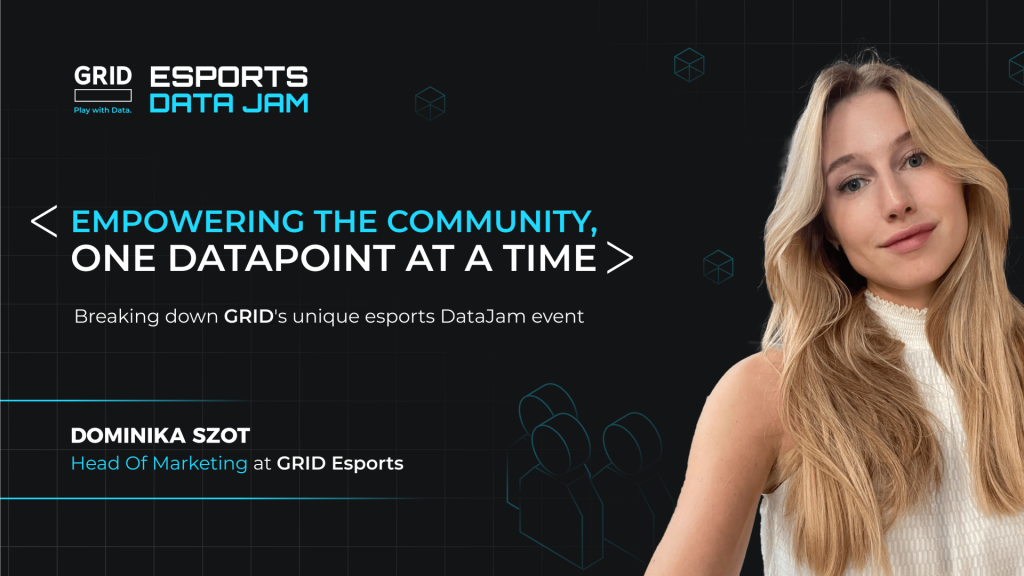
Since its inception, esports has gone from a grassroots phenomenon to an ever-developing industry. Whether it is the final of League of Legends Worlds 2023 breaking all-time record viewership numbers, or Nintendo’s strict new policy on its competitive scene — esports has been a topic on the lips of everyone in the gaming industry for over a decade.
One factor in this rapid development has been the rise of esports data, with more and more data solutions bolstering esports’ adjacent sectors such as broadcasting and betting. Still, there’s room to offer more innovative products that can create greater experiences for the esports fanbase. But how does the industry continue to inspire innovation in a data-driven ecosystem?
Earlier this year, the game data company GRID teamed up with Esports Insider and Opera GX to launch the Esports DataJam, the first edition of a competition designed to entice esports fans and developers interested in working with game data to build projects utilising the GRID Data Platform.
Immediately following the announcement, budding developers began creating a variety of data-led esports and gaming solutions, ranging from analytics solutions to esports micro-betting platforms and sponsorship trackers. The projects were then evaluated by a panel of judges, including esports professionals, until a select few were announced as award winners.
The competition’s main prize, which included $6,000 (~£4,950) and one year of upgraded access to the GRID Data Platform, was eventually won by Chat GPT-focused analytics platform, GRID eSports Analytics, created by an independent developer from India. Some of the other awards included the Opera GX category, Popular Choice award and Most Creative App.
However, whilst the spotlight ultimately shone on the competition’s victors, the success of the Esports DataJam showcased an appetite from community members to develop new data-led solutions in the industry, and the critical role of access to official data.
“We were really impressed by the number that we ended up with, over 800 people signed up and dozens of projects were submitted,” stated Dominika Szot, GRID’s Head Of Marketing.
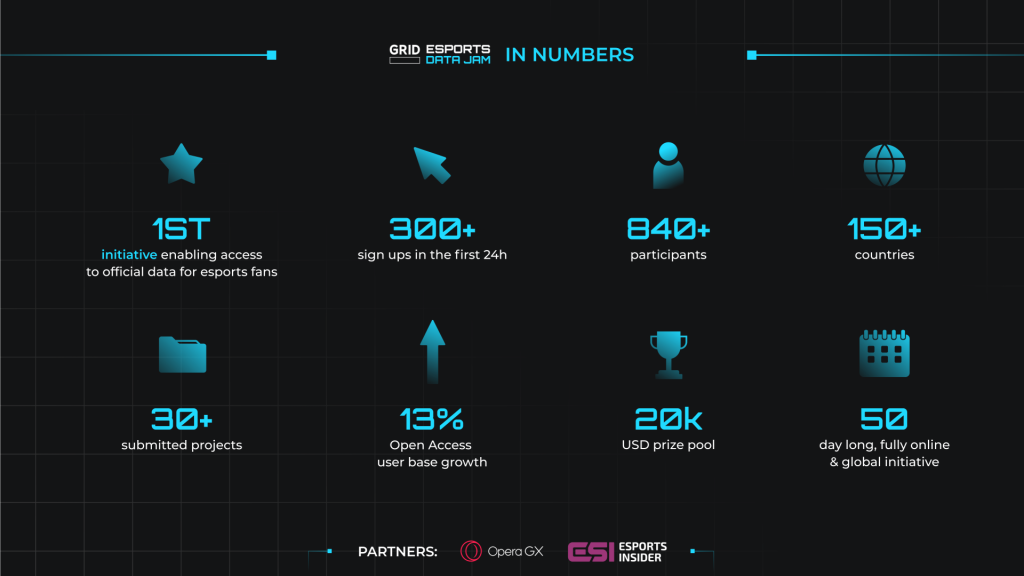
“The thing that I was the most surprised by was not the participation — in the end at GRID we strongly believe in data being a driver for innovation — but the diversity of participants who applied and who signed up and how global the initiative turned out to be. We had people from over 150 countries with various levels of understanding of game data and various skill sets. This diversity was incredible, and shows that esports data can be a universal, global entry point to developing transferable skill sets. ”
Speaking to Szot, GRID was initially cautious when estimating the number of potential participants. However, there was quickly an air of confidence from GRID that the initiative would get a lot of interest, largely because hackathon events of this scale, at least within the esports sector, are sporadic.
“We had already over 300 sign-ups in the first 24 hours. It definitely showed that there was a hunger in the community and that all the fans needed to create was a platform to do so on. We provided them with the best quality data and some guidance, but the rest was ultimately the miracle of their innovation.”
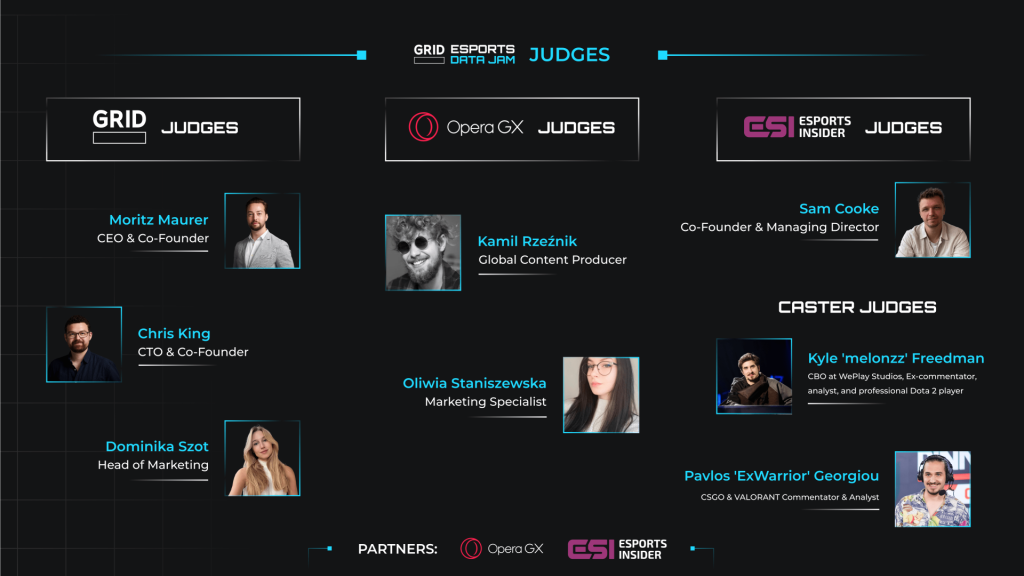
Szot highlighted that GRID had previously interacted with research centres, academic researchers and fans worldwide.
These interactions sparked the idea to create a universal entry point for fans, engaging them with data and offering an opportunity to develop transferable skills to better understand how esports data works.
GRID Open Access is the company’s project that offers free access to official esports data to fans, creators and aspiring start-ups. According to the company, providing free access to official data assets enables developers and fans to build data-driven products from day one. This is enabled by using officially licensed data from rights holders partnered with GRID. The company noted that GRID Open Access is now supporting over 300 projects.
When asked about why GRID undertook the task of planning a hackathon event, Szot said: “We’ve realised with the launch of GRID Open Access last year that there is massive untapped potential in empowering fans with the right tools and giving the voice to the community. Last year brought a big influx of applications, covering more than 20 different use cases – from data visualisation to blockchain or AI, and many people raised their interest in interacting with data despite it being still very much organic.”
Esports and beyond – empowering the next generation of top industry talents.
As the industry continues to professionalise, more qualified esports fans are working their way into the esports sector, equipped with transferable skills that can help bolster important operations like broadcasting, event managing and creating greater technology solutions.
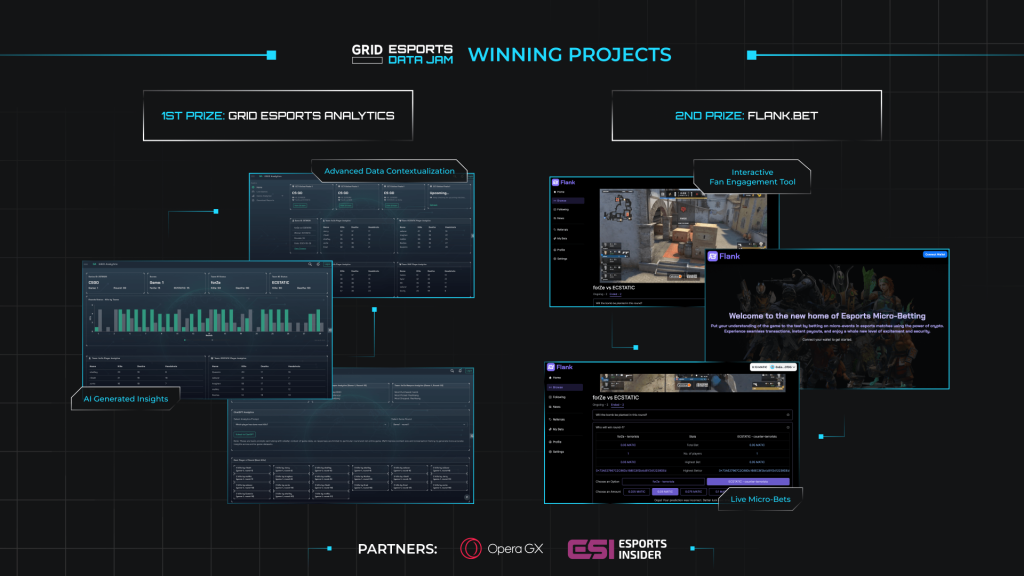
“Providing access to official data is at the core of GRID’s mission,” Szot highlighted. “We believe that by doing so through initiatives like GRID Open Access, or hackathons, we contribute to establishing the foundation for the future talents to develop the right habits of working with official data sources and ultimately support sustainable growth of the ecosystem.”
Esports fandoms have started to mature, with individuals looking beyond watching gameplay when it comes to consuming content. This means that greater fan engagement services need to be developed that allow individuals to tap into esports statistics or watch esports broadcasts in different manners. This need to innovate was also on show when GRID teamed up gaming browser Opera GX to be a part of the competition.
“Partnering with Opera GX and introducing a category dedicated to their browser was a great opportunity to steer innovation into a new direction, offering participants a tangible use case to work with. We love to see novel, unheard-of-before applications of game data, especially if they can enhance the products of our partners,” added Szot.
The benefits of an esports hackathon
Whilst the primary goal of GRID’s DataJam was to provide opportunities to esports data enthusiasts, the competition also benefited the game data platform. Szot noted that some participants utilised GRID’s Open Access platform in ways that the company had previously not thought of, whether that was using new tools to bolster GRID’s existing solutions or coding esports data in ways that hadn’t previously been considered.
“We are conscious of what the role of the GRID Data Platform truly is,” she said. “Data is not a commodity to us, it’s a universal key to the future of competitive gaming, and we are determined to bring it into the hands of everyone who wants to unlock its potential.”
“It means that we will not always be the ones with the best ideas for what to do with this unique asset, but we want to be there when the idea sparks in the mind of passionate fans, and make sure they have the right tools to turn their ideas into reality.”
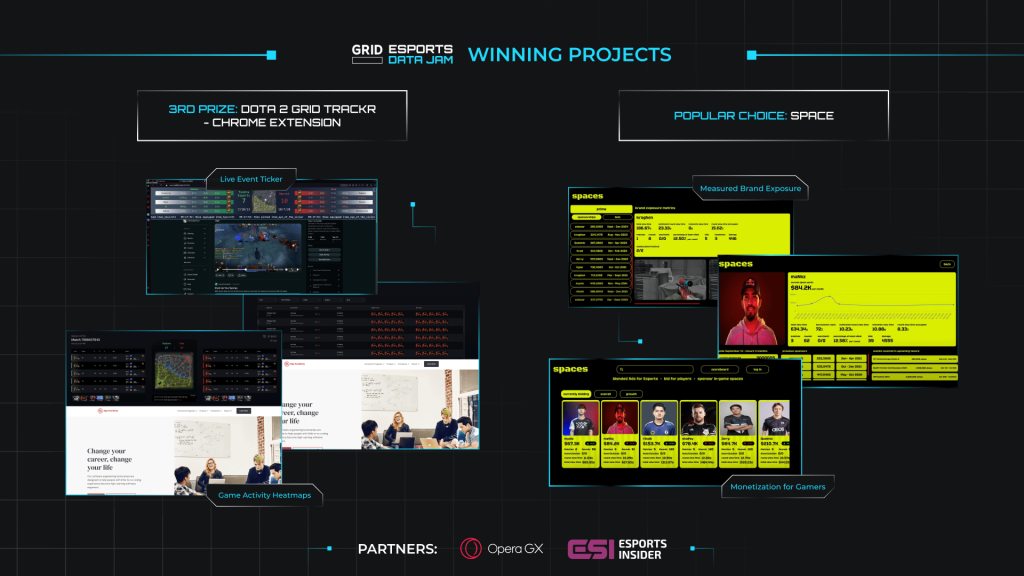
The event also created somewhat of a closer esports data community, with Szot stating that GRID created a Discord community that now features up to 300 developers where people can receive support and attend Q&A sessions with GRID employees to get feedback and discuss projects.
Given the positive reaction to the GRID Esports DataJam hackathon, it was no surprise to hear that there are intentions to run more events of its kind.
“We’ve established some sort of a precedent by running that first DataJam – by democratising access to official data. It is a great foundation for more initiatives to come and we want to make sure GRID Data is there to empower the sustainable growth of the esports ecosystem.”
People can still check out all of the projects that were developed on the GRID DataJam website and sign up to GRID Open Access.
Supported by GRID Esports. Esports Insider was a partner for this edition of the Esports DataJam.
